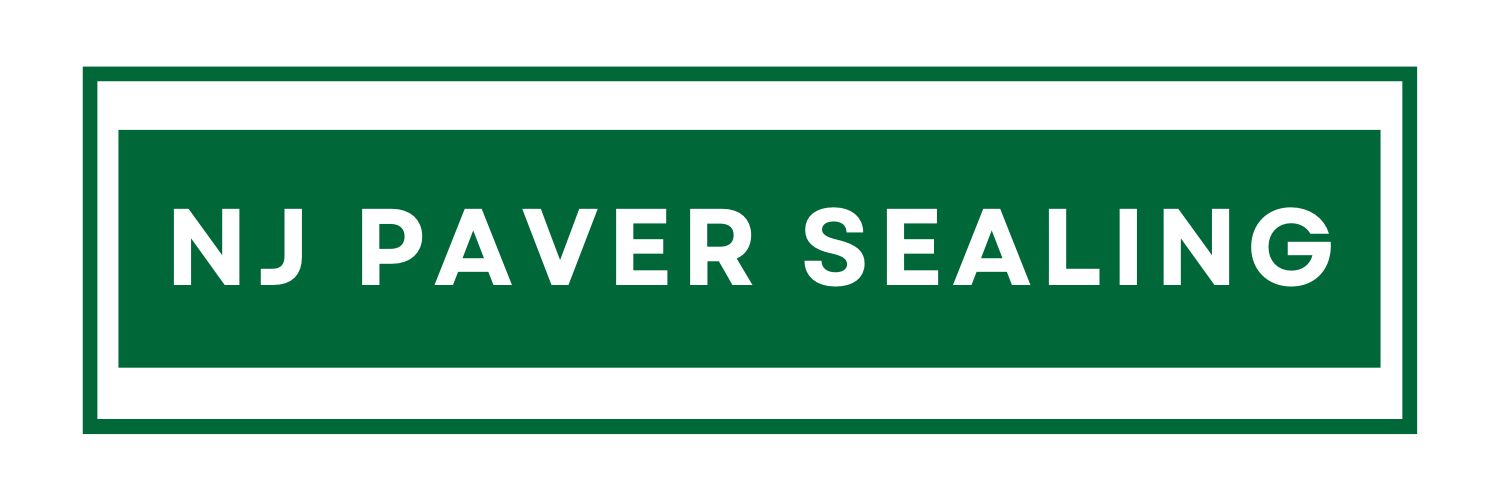Paver sealing is often overlooked, but skipping this essential maintenance step can lead to significant damage, especially after a harsh winter. If you don’t seal your pavers in the spring, you may face weed overgrowth, stains from seasonal debris, fading due to UV exposure, and water erosion that weakens the foundation of your paver system.
To maintain the beauty and durability of your outdoor space, sealing pavers after winter is crucial. Here’s what can happen if you delay or skip this step.
Increased Weed Growth Due to Moisture Trapped in Joints
Moisture is one of the biggest threats to unsealed pavers. After winter, melting snow and frequent spring rain create the perfect conditions for weeds to grow between paver joints.
- When joint sand is washed away by rain or snowmelt, it leaves gaps where weeds and moss can take root.
- The damp, shaded environment between pavers encourages weed growth, which can quickly spread across your driveway, patio, or walkway.
- As weeds grow, their roots push pavers apart, leading to instability and misalignment over time.
Sealing your pavers after winter helps stabilize joint sand, preventing water from seeping in and stopping weed growth before it starts. A professional-grade sealer forms a protective barrier that locks in the sand, keeping weeds and moss from taking hold.
Risk of Stains from Springtime Pollen, Leaves, and Debris
Spring brings warmer weather and more time spent outdoors, but it also introduces new sources of stains on your pavers. Pollen, fallen leaves, and organic debris can settle into the porous surface of unsealed pavers, leading to stubborn stains.
- Pollen buildup creates a yellowish tint on the surface of pavers, which can be difficult to remove without regular washing.
- Decaying leaves and plant debris leave behind dark stains that penetrate deep into porous pavers, making them difficult to clean.
- Mud and dirt from spring rain can accumulate, creating an unsightly, dingy appearance.
Sealed pavers resist stains because the protective layer prevents dirt, pollen, and debris from absorbing into the surface. This makes cleaning easier and helps maintain the fresh, vibrant look of your outdoor space. Without sealing, stains can become permanent, requiring professional cleaning or even replacement of affected pavers.
UV Exposure Leading to Fading and Discoloration
Sunlight exposure is another major factor that affects unsealed pavers. Over time, the sun’s ultraviolet (UV) rays can cause fading, making your pavers look dull and washed out.
- Dark-colored pavers are particularly susceptible to fading when exposed to direct sunlight.
- Unsealed pavers absorb UV rays, which break down the pigments that give them their rich, natural color.
- Discoloration happens unevenly, creating a patchy appearance that reduces curb appeal.
A high-quality sealer contains UV-resistant properties that help protect your pavers from sun damage. This keeps their original color vibrant and prevents uneven fading. If you wait too long to seal your pavers, the color loss may become permanent, requiring costly restoration treatments.
Water Erosion Weakening the Foundation of Your Pavers
Water is one of the most damaging elements for unsealed pavers. Spring rain and leftover moisture from winter can lead to serious erosion issues that affect the stability of your paver system.
- Without sealing, water seeps into the joints and underneath the pavers, washing away the sand that keeps them in place.
- Erosion weakens the foundation, causing pavers to shift, sink, or become uneven over time.
- In colder regions, the freeze-thaw cycle can worsen damage by expanding cracks and increasing the risk of breakage.
Sealing your pavers creates a water-resistant barrier, preventing rain from washing away joint sand and stopping water from penetrating the surface. This protection extends the lifespan of your paver system and helps you avoid costly repairs caused by shifting and instability.
Why You Should Seal Your Pavers After Winter
If you want to keep your pavers looking their best and structurally sound, sealing after winter is a must. By applying a professional-grade sealer in the spring, you can:
- Prevent weeds and moss from growing between pavers
- Reduce stains from pollen, leaves, and debris
- Protect against fading and discoloration from the sun
- Stop water erosion and extend the life of your paver system
At NJ Paver Sealing, we provide expert paver cleaning and sealing services to help homeowners restore and protect their outdoor spaces. Our high-quality sealers lock in joint sand, prevent moisture damage, and enhance the appearance of your pavers.
Call 732-800-6085 today to schedule your paver sealing in Point Pleasant Beach, NJ. Visit NJ Paver Sealing for more information or check out our Google Maps listing to find us.
Sealing your pavers now will ensure they stay beautiful, strong, and protected all year long. Don’t wait until damage becomes irreversible—secure your appointment today!
